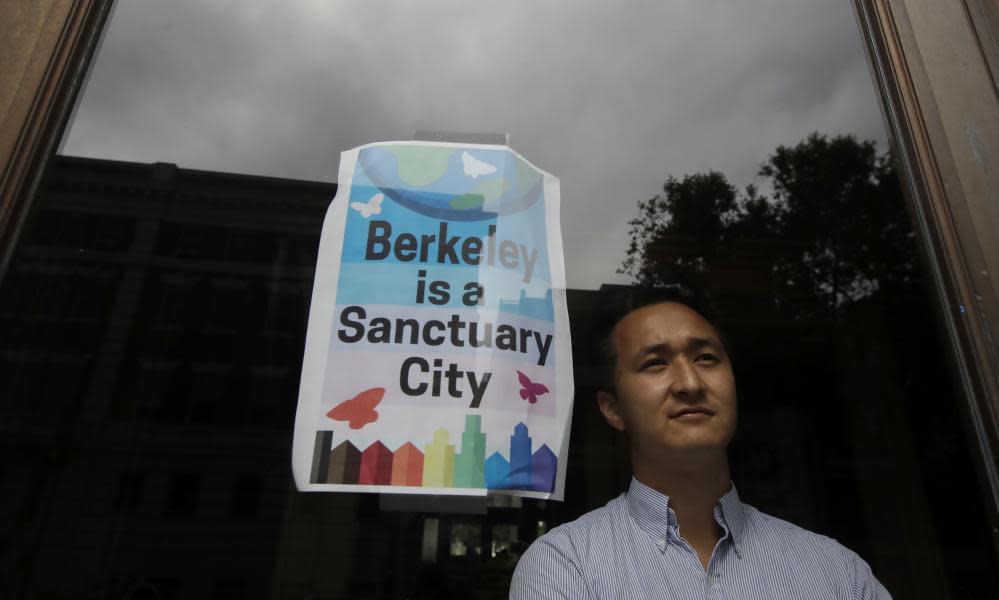California city moves to replace police with unarmed civilians for traffic stops

The city of Berkeley is moving forward with a first-of-its kind proposal to replace police with unarmed civilians during traffic stops in an effort to curb racial profiling.
After hours of emotional public testimony, council members in the northern California city approved a reform measure that calls for a committee tasked with police reforms. They include removing the police department from responding to calls involving people experiencing homelessness or mental illness and finding ways to eventually cut the police budget by half. The vote also called for the creation of a separate city department to handle the enforcement of parking and traffic laws.
The plan appears to be a landmark move in a US city and comes as many regions across the country are facing growing calls to defund and dismantle police departments in the wake of George Floyd’s death.
Numerous studies have shown Black drivers are much more likely to be stopped by police than white people for minor traffic infractions, with sometimes deadly results. Philando Castile, for example, was fatally shot after the 32-year-old was stopped for a broken tail light in 2016 in Minnesota. And Sandra Bland, 28, died in a jail cell three days after being stopped for failing to signal when changing lanes in Texas in 2015.
At the council meeting, after residents shared personal accounts of police violence, Berkeley’s mayor, Jesse Arreguin, said he did not expect a new transportation department overnight because conversations will be hard and detailed with complicated logistics to figure out. But he said communities of color in his city feel targeted by police and that needs to change.
Related: George Floyd's family sues Minneapolis over police killing
“There may be situations where police do need to intervene, and so we need to look at all that,” he said. “We need to look at if we do move traffic enforcement out of the police department, what does that relationship look like and how will police officers work in coordination with unarmed traffic enforcement personnel?”
Some progressive Bay Area activists said the move was a step in the right direction, but did not go far enough. The majority of commenters during a nearly nine-hour meeting that ended in the middle of the night had called for a more radical proposal of immediate defunding of the Berkeley police.
Veena Dubal, a University of California law professor and former Berkeley police review commissioner, noted that traffic enforcement is one of the most common ways that police interact with community members, which can lead to harmful consequences: “Black and Brown men are disproportionately pulled over for minor traffic violations, and that’s when we see this escalation … That is where you see the violence unfold.”
Mohamed Shehk, with the abolitionist group Critical Resistance, said he supported the idea of removing police from traffic enforcement, but said it was vital that the alternative department Berkeley creates does not replicate the same problems: “We also need to be dismantling the systems of fines and fees that keep communities that are targeted by these policies in poverty.”
Residents speaking at the council meeting made clear that they wanted something “much bolder”, he added. “We’ve seen how incrementalism and cosmetic reforms are not substantial enough to reduce or reverse the enormous amounts of damage, violence, harm and racism that policing has inflicted on communities for decades.”
It could take months, even years, to create a new department, but police and other law enforcement leaders rebuked the idea.
“I think what Berkeley is doing is nuts,” said Mark Cronin, a director with the Los Angeles Police Protective League, a union for officers. “I think it’s a big social experiment. I think it’s going to fail.”
The Berkeley police department said it did not comment on council legislation. But police unions for Los Angeles, San Francisco and San Jose issued a statement opposing the proposal.
Arreguin, the mayor, said creating a new department was a phase-two development that was at least a year away and would probably involve making changes to state law.
Agencies contributed reporting

